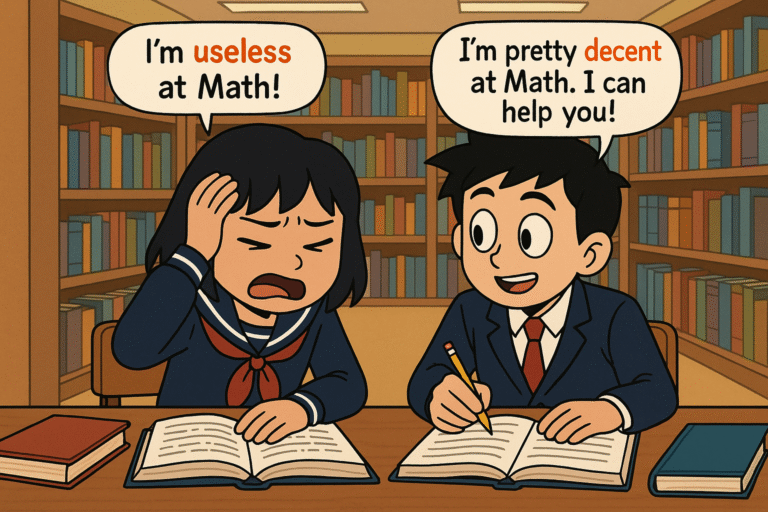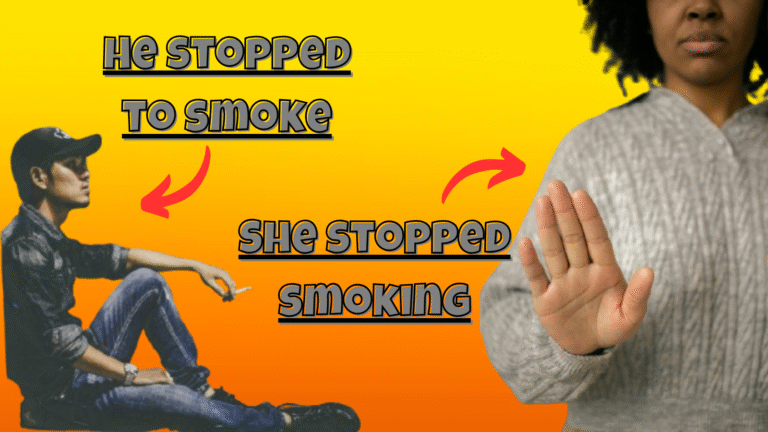Goal
By the end of this lesson, students will be able to:
- Understand when and how to use certain tenses in their essays.
- Use these tense types effectively in IELTS Writing Task 2 to express ideas clearly and demonstrate grammatical range.
- Apply sentence types to common IELTS topics (e.g., education, technology, environment, health).
In IELTS Writing Task 2, different parts of the essay demand specific tenses based on the function of the sentence. Below is a breakdown of commonly used tenses and their typical applications:
Present Simple:
- Use: To state general facts, opinions, current situations, trends, or habits.
- Examples in Task 2:
- Introduction: “Many people believe that education is essential for success.”
- Body: “Technology plays a crucial role in modern communication.”
- Conclusion: “Governments need to address environmental issues urgently.”
- Why effective?: Shows the writer’s ability to discuss timeless truths or current realities, common in stating arguments or background information.
Present Continuous:
- Use: To describe ongoing trends, changes, or developments happening now.
- Examples in Task 2:
- Introduction: “The world is experiencing rapid urbanisation.”
- Body: “More companies are adopting remote working policies.”
- Why effective?: Highlights dynamic changes, relevant for topics like technology, environment, or society, showing awareness of current trends.
Present Perfect:
- Use: To discuss past actions or events with present relevance, or to describe experiences and changes up to now.
- Examples in Task 2:
- Introduction: “Globalisation has transformed economies worldwide.”
- Body: “Scientists have developed innovative solutions to reduce pollution.”
- Why effective?: Connects past actions to current situations, useful for discussing impacts or progress, which strengthens arguments.
Past Simple:
- Use: To describe completed actions, historical events, or past situations relevant to the essay topic.
- Examples in Task 2:
- Body: “In the 1990s, many countries implemented strict environmental laws.”
- Body: “Industrialisation led to significant economic growth in several nations.”
- Why effective?: Provides historical context or evidence, especially in problem-solution or cause-effect essays.
Past Continuous:
- Use: To describe ongoing actions in the past, often as background to another event.
- Examples in Task 2:
- Body: “While governments were focusing on economic growth, environmental issues were often ignored.”
- Why effective?: Adds complexity to historical descriptions, showing the ability to handle nuanced time frames.
Past Perfect:
- Use: To describe actions completed before another point in the past, useful for cause-effect relationships.
- Examples in Task 2:
- Body: “By 2000, many species had become extinct due to deforestation.”
- Why effective?: Demonstrates advanced tense use, useful for discussing causes or consequences in historical contexts.
Future Simple:
- Use: To predict future outcomes, propose solutions, or discuss expectations.
- Examples in Task 2:
- Conclusion: “Implementing stricter laws will reduce crime rates.”
- Body: “Renewable energy will become more affordable in the coming years.”
- Why effective?: Essential for conclusions or solution-focused essays, showing forward-thinking ideas.
Future Continuous:
- Use: To describe ongoing future actions or trends.
- Examples in Task 2:
- Conclusion: “In the future, more people will be relying on public transport.”
- Why effective?: Adds sophistication to predictions, particularly in essays about trends or societal changes.
Scoring Impact:
- Band 7+: Candidates must demonstrate a range of tenses used accurately and appropriately. Over-reliance on one tense (e.g., only Present Simple) limits the grammatical range score. Mixing tenses effectively in context shows control and flexibility, key for higher bands.
Task: Fill. in the gaps with the most appropriate tense (Present simple or present continuous).
- Technology ______ (shape) the way we communicate daily.
- Nowadays, more people ______ (choose) to work from home.
- Education ______ (be) a key factor in reducing poverty.
- More students ______ (pursue) higher education to improve their career prospects.
- Globalisation ______ (affect) local cultures in many parts of the world.
- The government currently ______ (implement) new policies to address housing shortages.
- Many experts ______ (argue) that climate change is the most urgent issue facing humanity.
- These days, people ______ (spend) more time on their smartphones than ever before.
- Public health campaigns usually ______ (encourage) citizens to adopt healthier lifestyles.
- At present, the job market ______ (change) rapidly due to advances in artificial intelligence.
- Social media ______ (transform) how people interact. It provides instant communication but also creates challenges like misinformation. Many users believe it strengthens connections, while others argue it reduces face-to-face interaction.
Answers
1. Technology shapes the way we communicate daily. (Present simple: general truth/habitual action.)
2. Nowadays, more people are choosing to work from home. (Present continuous: current trend happening now.)
3. Education is a key factor in reducing poverty. (Present simple: general fact.)
4. More students are pursuing higher education to improve their career prospects. (Present continuous: ongoing trend in the present.)
5. Globalisation affects local cultures in many parts of the world. (Present simple: regular or consistent impact.)
6. The government currently is implementing new policies to address housing shortages. (Present continuous: temporary action happening now.)
7. Many experts argue that climate change is the most urgent issue facing humanity. (Present simple: general opinion regularly expressed.)
8. These days, people are spending more time on their smartphones than ever before. (Present continuous: ongoing change/trend.)
9. Public health campaigns usually encourage citizens to adopt healthier lifestyles. (Present simple: typical or routine action.)
10. At present, the job market are changing rapidly due to advances in artificial intelligence. (Present continuous: current rapid change.)
11. Social media is transforming how people interact. It provides instant communication but also creates challenges like misinformation. Many users believe it strengthens connections, while others argue it reduces face-to-face interaction. (Present continuous: ongoing development)
Task 1: Fill in the gaps with the present perfect. (The first one has been done for you)
- In recent years, many countries ______ (introduce) stricter laws to combat air pollution.-> In recent years, many countries have introduced stricter laws to combat air pollution.
- The rise of e-commerce ______ (change) the way consumers shop across the globe.
- Governments ______ (invest) heavily in renewable energy to address climate change.
- Several technological innovations ______ (transform) the field of education.
- Over the past decade, the cost of higher education ______ (increase) significantly.
- Many people ______ (become) more health-conscious due to growing awareness of lifestyle diseases.
- Researchers ______ (identify) a strong link between social media use and mental health issues.
Answers
1. In recent years, many countries have introduced stricter laws to combat air pollution.
2. The rise of e-commerce have changed the way consumers shop across the globe.
3. Governments have invested heavily in renewable energy to address climate change.
4. Several technological innovations have transformed the field of education.
5. Over the past decade, the cost of higher education have increased significantly.
6. Many people have become more health-conscious due to growing awareness of lifestyle diseases.
7. Researchers have identified a strong link between social media use and mental health issues.
Task 2: Rewrite the following using the present perfect with an appropriate verb. (The first one has been done for you.)
1. Pollution ________ dramatically in the last 50 years -> Pollution has increased dramatically in the last 50 years
2. The government ________ several initiatives to improve access to education.
3. Researchers ________ a new method to recycle plastic more efficiently.
4. Many people ________ their views on climate change due to recent events.
5. The unemployment rate ________ slightly since the beginning of the year.
6. Social attitudes ________ significantly over the past two decades.
7. Experts ________ numerous studies on the impact of screen time on children.
Possible Answers
2. The government has introduced/created/ implemented several initiatives to improve access to education.
3. Researchers have discovered/found a new method to recycle plastic more efficiently.
4. Many people have changed their views on climate change due to recent events.
5. The unemployment rate has fallen/ has increased slightly since the beginning of the year.
6. Social attitudes have shifted/changed significantly over the past two decades.
7. Experts have published/conducted numerous studies on the impact of screen time on children.
Fill in the blanks using the appropriate tense. Use the verb in brackets. ) The first one has been done for you.)
- By the time the government introduced new housing policies, many people ______ (struggle) with unaffordable rent for years. -> By the time the government introduced new housing policies, many people had been struggling with unaffordable rent for years.
- While the education system ______ (focus) on academic skills, employers are demanding more practical experience.
- The crime rate significantly ______ (drop) after authorities implemented stricter laws.
- Before online learning platforms became widespread, most students ______ (depend) entirely on traditional classrooms.
- In 2010, the country ______ (launch) a major campaign to reduce obesity.
- When the policy was announced, many citizens ______ (already/express) concerns about its fairness.
- At the time of the economic crisis, the unemployment rate ______ (rise) steadily for several months.
- The company ______ (invest) heavily in research before it developed the new technology.
Answers
2. While the education system are focusing on academic skills, employers are demanding more practical experience.
3. The crime rate significantly dropped after authorities implemented stricter laws.
4. Before online learning platforms became widespread, most students had depended entirely on traditional classrooms.
5. In 2010, the country launched a major campaign to reduce obesity.
6. When the policy was announced, many citizens had already expressed concerns about its fairness.
7. At the time of the economic crisis, the unemployment rate was rising steadily for several months.
8. The company had invested heavily in research before it developed the new technology.
Task 1: Rewrite the following using the Future Simple with an appropriate verb. (The first one has been done for you.)
1.In the coming years, more people ______ (work) remotely due to advancements in digital communication. -> 1.In the coming years, more people will work remotely due to advancements in digital communication.
2. If current trends continue, climate change ______ (have) a serious impact on global agriculture.
3. Experts predict that artificial intelligence ______ (replace) many manual jobs in the near future.
4. Governments ______ (need) to invest more in education to prepare for future economic challenges.
5. By 2040, electric vehicles ______ (become) the dominant mode of transportation in urban areas.
6. As the population grows, cities ______ (face) increased pressure on housing and infrastructure.
7. In the future, more universities ______ (offer) online degree programs to reach international students.
8. It is likely that renewable energy sources ______ (reduce) our dependence on fossil fuels.
9. Public health campaigns ______ (play) a crucial role in promoting healthier lifestyles.
10. Advances in medical technology ______ (help) doctors diagnose and treat diseases more effectively
Possible Answers
1.In the coming years, more people ______ (work) remotely due to advancements in digital communication. -> 1.In the coming years, more people will work remotely due to advancements in digital communication.
2. If current trends continue, climate change will have a serious impact on global agriculture.
3. Experts predict that artificial intelligence will replace many manual jobs in the near future.
4. Governments will need/have to invest more in education to prepare for future economic challenges.
5. By 2040, electric vehicles will become the dominant mode of transportation in urban areas.
6. As the population grows, cities will face increased pressure on housing and infrastructure.
7. In the future, more universities will offer/have online degree programs to reach international students.
8. It is likely that renewable energy sources will reduce our dependence on fossil fuels.
9. Public health campaigns will play a crucial role in promoting healthier lifestyles.
10. Advances in medical technology will help doctors diagnose and treat diseases more effectively
Task: Write A full Task 2 essay
Include each of the tenses at least once and mark it clearly in brackets e.g. (present simple):
- Present Simple
- Present Continuous
- Present Perfect
- Past simple
- Past continuous
- Past perfect
- Future Simple
Prompt: “Globalisation has transformed economies, cultures, and societies worldwide. Some people believe that it brings significant benefits, while others argue that its disadvantages outweigh the advantages. Discuss both views and give your own opinion.”
Sample Answer (Supporting globalisation)
Since the 1980’s, globalisation has accelerated globally (present perfect). Though some condemn (present simple) internationalism, I side with those who recognise the overwhelmingly positive effect it has had on our lives.
It is true that with diversity comes tension. This is usually a result of economic inequality and cultural disruption. Today, we are seeing (present continuous) more and more anti-immigration protests dominating the news, likely due to this very reason. For example, in Ireland, there is plenty of civil unrest since the intake of refugees from places like Ukraine, Somalia and Syria. Furthermore, cultural erosion is a side-effect. Naturally, having a more international country means that indigenous traditions and cultures are at a higher risk of being lost unless the state and citizens take action to preserve them. Take languages for instance. Due to the rapid linguistic homogenisation, it is likely that thousands of languages will disappear (Future simple) by the next century. These are both indeed valid concerns, but the advantages of globalisation still make it worth it.
The first major benefit is economic. Had there been no globalisation (past perfect), people would not have access to the current international markets, job opportunities abroad, global supply chains and foreign investment, all of which raise the standard of living. Additionally, cultural exchange and diversity is enriching. For instance, many Turkish people came (past simple) to Ireland in the 1990’s and 2000’s as they were coming (past continuous) for better work and education opportunities, which now means that the people have access to authentic Turkish food like kebabs throughout the country. Finally, technological innovation flourishes in this global system. Rather than keeping it to themselves, countries now typically share and collaborate on a range of technologies, from medicinal to entertainment, all improving life for people around the world. All of these immeasurably impact people’s lives.
In conclusion, while there are undoubted issues like cultural friction and cultural dilution, it must be understood that it is globalisation that is the reason for much of the prosperity and enjoyment we have today and thus, it is why I see more advantages that make it worth having than not. (341 words)







